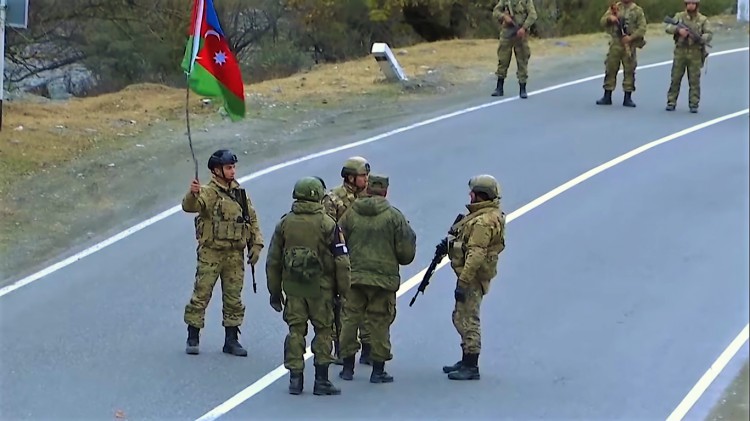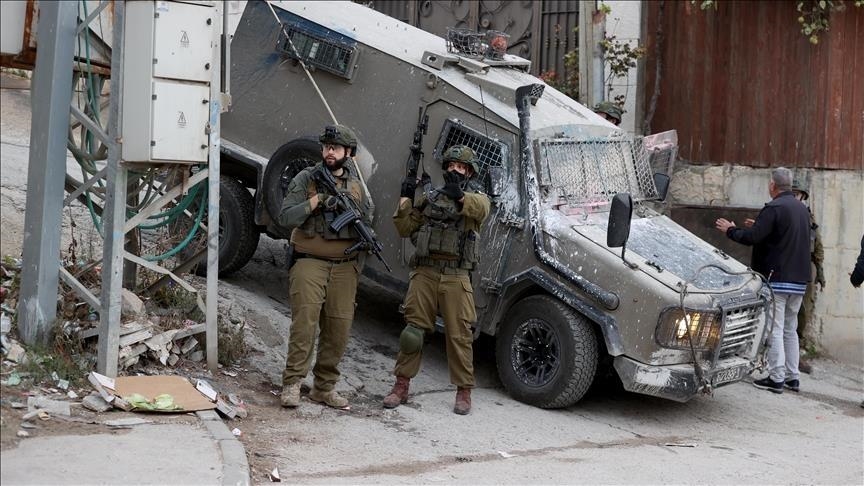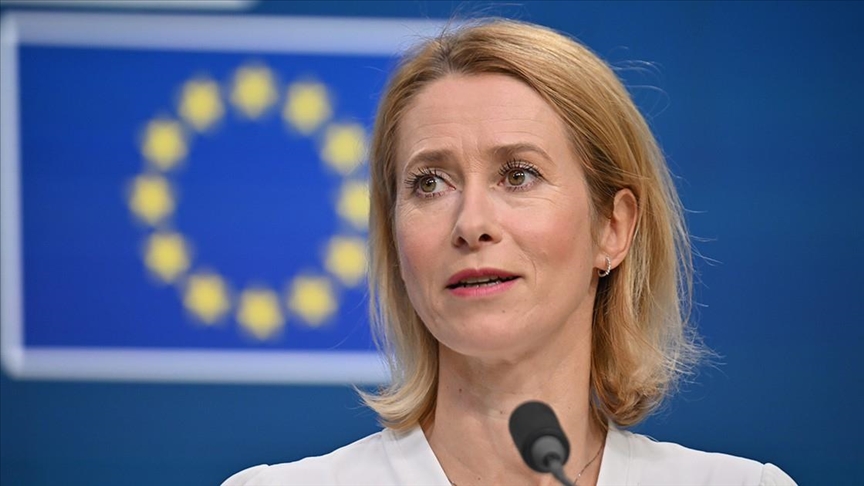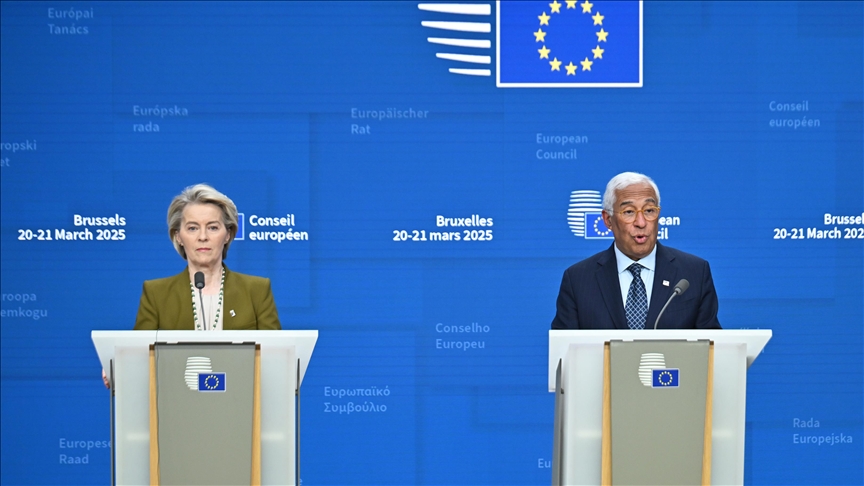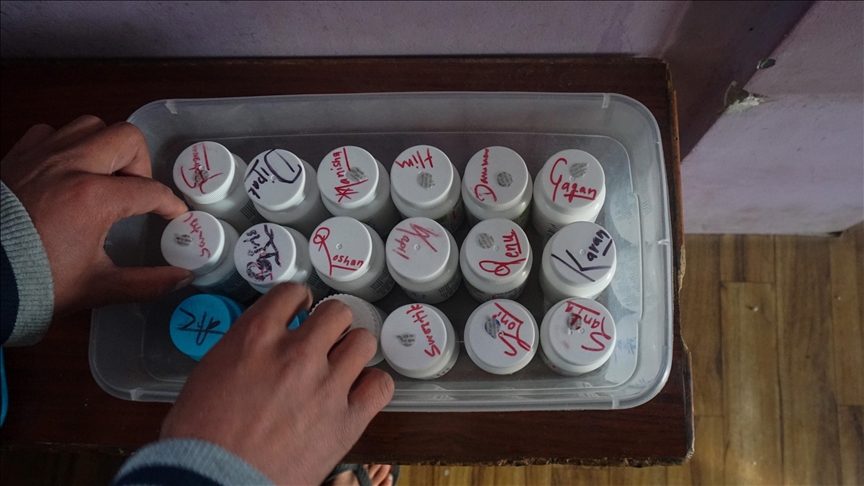Azerbaijan’s victory in the second Karabakh war of September-November 2020 was the historic event in the country. Due to the strong fighting spirit of national army and farsighted diplomacy of the supreme commander in chief Ilham Aliyev Azerbaijan could liberate Nagorno Karabakh and adjacent districts from Armenian occupation. Unfortunately, currently several districts of Nagorno Karabakh- Khojaly, Khankendi, Khojavend, Agdere and villages are under control of Russian peacekeepers. As a result, some people worry that these lands will not be under control of Azerbaijani government any more. However, the history proves the opposite - there have been cases when a country liberated significant portion of lands from occupants and freed the remainder with diplomatic means years later.
After declaration of independence of Croatia in June 1991, a group of Serbian separatists proclaimed their own “Republic of Serbian Krajina (RSK)” in the same year, which followed a full-fledged war with Croatia till 1995. Similar to the self-proclaimed Republic of Nagorno-Karabakh, RSK was not recognized by international community. This republic occupied around 30 percent of territory of Croatia and was de-facto controlled by Serbian forces. Serbian separatists were receiving military support of Belgrade, diplomatic support of former notorious president of Serbia-Slobodan Milosevich and western countries, including Russia. The war between Croatia and the Republic of Serbian Krajina culminated with the armed attack known as “Operation Storm" in 1995, as a result of which, Croatia liberated a significant part of occupied lands and paved a way to diplomatic negotiations between the two. The Erdut Agreement, signed between the Republic of Croatia and Serbian local authorities in 1995, put an end to the multiyear war between them, and led to reintegration of remaining lands to the republic of Croatia in 1998.
Croatian success story should give trust and hope to Azerbaijani people in the purge of Khojaly, Khankendi, Khojavend, Agdere and villages from Russian peacekeepers and return of full control over these regions to the republic of Azerbaijan in the near future. We have to be aware of the fact that Russia of 1990s was much weaker both militarily and economically compared to the present Russia, hence, liberation of these districts will take some time, but it will happen.
To get insights about the future of present-day Russian controlled regions, Eurasia Diary has taken an interview from professor of political science at ADA University Azer Babayev.
- How would you evaluate the role of Russian peacekeepers in Khojaly, Khankendi, Khojavend, Agdere and some villages of Karabakh which, as we know, are de-facto under control of Russian peacekeepers?
- It is a big and complicated question. Evaluation is always a normative idea- it has both good and bad sides. I think there is a good aspect of Russian peacekeeping mission. First, it is because Russia effectively ended this war in Karabakh from humanitarian perspective and generally from liberal international perspective. What Russia did was a good thing from morality perspective as well- no more killings and human sufferings. Everybody would agree on these things. It is not only about ending this war, but also about the maintenance of ceasefire- there are no major violent clashes between two sides. Objectively, from human’s perspective Russian peacekeeping mission is desirable because refugees are returning back to their lands. One interesting thing in this context is the question “Why Russians are only ones in peacekeeping mission, not Europeans and other nations!?”. If we look at the history of peacekeeping missions, we can rarely observe one nation doing peacekeeping operation in a foreign country. Usually, it is UN mission- multiple nations involved. One negative aspect of it is that Russians can manipulate this mission for their own interests which is always a possibility. Also, it is said that Russia is a part of the problem, rather than a solution to this conflict, which is why Russians, acting as peacekeepers, is an awkward thing. It is not peacekeeping, but rather imperial control over Karabakh region. Also, in the context of peace talks, it is often highlighted that peacekeepers should be from neutral countries, whereas we know that Russia has a treaty alliance with Armenia which is a negative aspect of Russian peacekeeping mission.
- After the dissolution of former Yugoslavia, the republic of Croatia declared its independence in 1991. Soon after it, Serbs established their own republic "Serbian Krajina" and separated from Croatia. Years later, Croatia liberated most of the occupied lands through war similar to what Azerbaijan did in 2020. The remaining lands were freed from control of Serbs with diplomatic means after Erdut agreement in 1998. Do you think Croatian success story might be reiterated in Azerbaijan, and we can purge Khojaly, Hankendi, Hocavend and Aghdere from Russian forces through negotiations in the near future as well?
- First of all, placement of Russians in Karabakh has limited time. According to the peace agreement of 10th November, Russians will stay in Karabakh 5 years and then will have to go, otherwise it would be a violation of this agreement. It is a great legal advantage of Azerbaijan over Russians. But this is only legal side of story, and we know that there is power politics in international relations. For example, Russians can blackmail or exert political pressure on Baku. So, I would say gaining full control of Karabakh by Azerbaijan is realistic, but not that easy. There are two options for Azerbaijan: starting a new war or negotiation. The situation has fundamentally changed since now we have Russians directly involved in a conflict which is why I think that a new war is highly unlikely. Even if it starts a war, Azerbaijan will start it with Russia because Russian troops are there, not Armenian ones. This is a new difficulty of Azerbaijan in the context of new military operations. But we can have a peaceful process as a new opportunity to gain full control over Nagorno Karabakh as well. These negotiations should be held with Russia because Armenia is already a secondary party, and Azerbaijan must find a common ground with Russia. There is both positive and negative side to this change of situation in this conflict. The positive side of it is that Russians can find arrangements and a compromise with Azerbaijan as a bargaining chief. The reason is that it is easier to have negotiations with Russia in a rational way through bargaining- political exchange. It is because Karabakh does not have any ideological or identity related meaning for Russia- it is just a territory for it. This means that Russia can make compromise over Nagorno Karabakh if Azerbaijan offers something else. The negative side of having Russia as a negotiating side is that if it does not abide by the demands of Azerbaijani side, Azerbaijan will not be able to exert pressure on Russia or threaten it because of military imbalance.
- Do you think the placement of Russian peacekeepers and control of Armenians in the abovementioned regions might impede the process of return of Azerbaijani refugees to their homeland?
- First, I want to refer to 10th November agreement which says that all refugees, including Azerbaijani refugees, should return to these regions. My prediction is that their return will most probably happen, but not in the near future. There is also a practical problem- whether Azerbaijani people are ready to live in Armenian environment!? Azerbaijanis would be minority, for example, in Khankendi, which is why it is important to know whether it will be comfortable for them to live together with Armenians. People will be concerned about their security in Armenian environment. This is why I think it will be a long process. When it comes to Russians, they will say that the liberated lands should be resettled first and only then Khojaly, Khankendi, Khojavend and Agdere. Also, they might say that the number of Azerbaijani refugees is not so big. This is a main challenge that Azerbaijan might face.
- One of the catalysts of successful reintegration of remaining occupied lands to the republic of Croatia after Erdut agreement was the establishment of United Nations Transitional Administration for Eastern Slavonia, Baranja and Western Syrmia (UNTAES) by Security Council resolution in 1996. Do you think there is a need for similar UN mission to reintegrate de-facto Russian controlled lands to Azerbaijan, and how effective might this initiative be?
- It is an open process to internationalize peacekeeping mission. Having UN mandate which involves neutral countries is an ideal peacekeeping mission. Scope of mandate of Russia in Karabakh is a problem because there are no constraints on its actions. There is also no treaty or document regulating Russia’s mandate to determine what Russians can do and what they can not do. There is a need for regulation of mandate of Russia in Karabakh. In this regard, it would be helpful to have UN’s involvement such as temporary administration. It is important to mention about monitoring center- joint observation center agreement for Nagorno-Karabakh between Turkey and Russia which currently has a symbolic meaning. It would be possible to politically upgrade this monitoring center by increasing the mandate of Turkey in Karabakh with a help of UN administration. Here, two things are very important: legitimacy and effectiveness. Un involvement would make Russia’s mandate more legitimate- accepted by many nations. This involvement would also be effective because it would guarantee security in the region, maintenance of ceasefire, and reintegration of these lands.
By Amil Abdukhaligov

